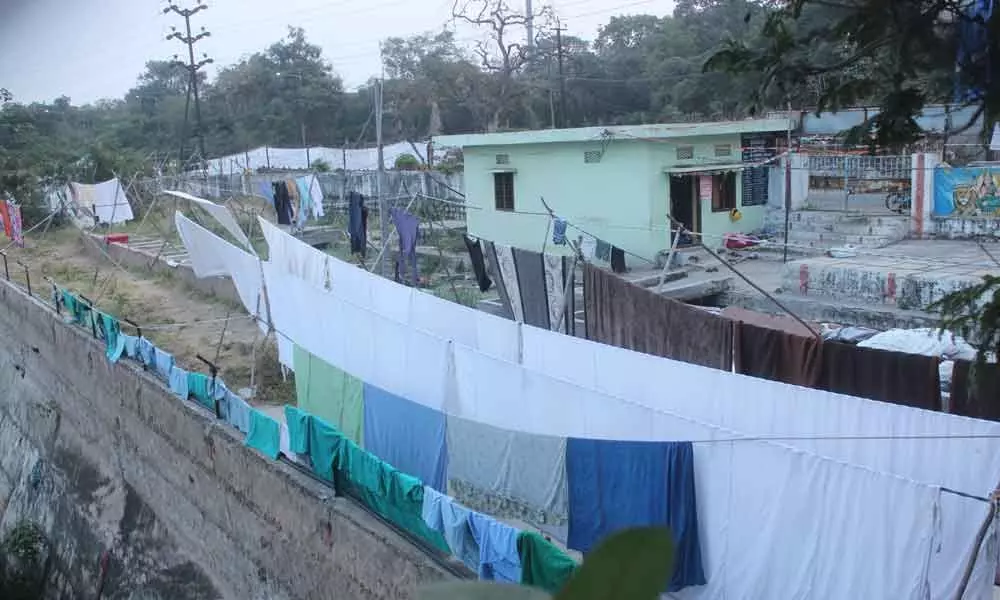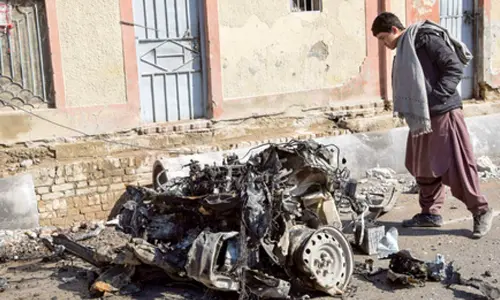What is it that TSPCB is monitoring?

A majority of hospitals in the city are not adhering to the Bio-medical Waste (Management and Handling) Rules, 1998, and obtaining permission to operate.
Hyderabad: A majority of hospitals in the city are not adhering to the Bio-medical Waste (Management and Handling) Rules, 1998, and obtaining permission to operate. An RTI filed by the Forum for Good Governance brought to light that there are 350 hospitals in the city that are violating norms and operating hospitals.
The list of hospitals issued with notice is already furnished. In a reply to RTI filed by the Forum for Good Governance, the TSPCB said that it issued notices to a list of hospitals and will once again send show cause notices and call for a meeting at the head office and the zonal office to review the response of hospitals for taking further necessary action.
TSVVP Hospital, Vanasthalipuram, is operating without obtaining authorisation under the Bio-medical Waste Management Rules, 2016. In a show cause notice dated April 3, 2019, TSPCB directed the hospital to obtain BMW authorisation through Telangana State Online Consent Management and Monitoring System (TSOCMMS) along with required fee within 10 days, failing which action would be initiated.
Members of Forum for Good Governance say, "Like TSVVP, there are hundreds of hospitals flouting norms and polluting water bodies." Bio-medical waste is generated during diagnosis, treatment, immunisation of human beings or animals, research activities by Health Care Facilities (HCFs) such as hospitals, nursing homes, clinics, dispensaries, vetinerary institutions, pathological laboratories, blood banks, where diagnosis, treatment, immunisation of human beings or animals is provided.
To drive home the message, the NGO informs that blood banks and hospitals simply throw expired or bad blood into the drains. To ensure scientific disposal of BMW, the central government has notified the Bio-Medical Waste (Management and Handling) Rules in 1998, under these rules, all healthcare facilities (HCFs) are required to apply to the Pollution Control Board (PCB) and take authorisation in handling the BMW and dispose of the waste strictly as per rules.
There are 4,200 HCFs in the state with a bed strength of 1.2 lakh. About 1,500 HCFs are located in Hyderabad and surrounding areas, out of which 350 HCFs are operating without taking authorisation. For such defaulters, the PCB has issued notices, but no further action has been taken. Repeated attempts to contact State PCB officials proved futile.
Most of the water bodies and water tanks in Hyderabad city and its surrounding areas are used to wash the blood-stained towels, bed sheets and other items. In many HCFs, municipal solid waste is mixed with BMW, leading to contamination of soil and water and in turn cause various diseases to animals and humans alike. Add to this, several pharma products manufacturing units in Patancheru and Bolarum industrial areas are already polluting water bodies.
According to PCB, to treat BMW, as many as 11 common BMW treatment and disposal facilities are approved but their functioning is not systematic and effective. Mere issue of notices to few HCFs will not serve the purpose; they need to set up sewage treatment plans (STPs), says M Padmanabha Reddy, Secretary, Forum for Good Governance.
















